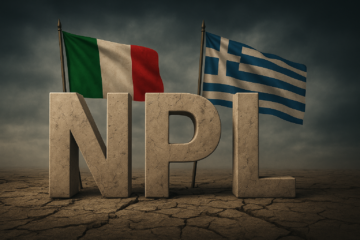PayPal (NASDAQ:PYPL) Market Cap as of 17th September 2021 – $324.7bn
Paidy – privately owned
Introduction
On September 8th PayPal Holdings Inc. announced its intention to acquire Japanese Buy-Now-Pay-Later (BNPL) company Paidy Inc. for $2.7bn in a largely cash deal. This deal, expected to close in the fourth quarter, leads the way for the expansion of PayPal’s own services in this field. Paidy was the first company to introduce BNPL solutions in Japan, and by acquiring it PayPal gains a strong foothold in this strategically important market. Paidy in turn will be able to exploit PayPal’s extensive resources to maintain and improve its dominant position in Japan. This transaction follows shortly after Square Inc.’s $29bn acquisition of BNPL provider Afterpay Ltd, in what can be described as a wave a of consolidation in an industry propelled to new heights thanks to the pandemic.
About PayPal
PayPal Holdings Inc. is a leading financial technology platform and payments firm which offers digital payment methods to over 400m customers in over 200 markets. It provides a two-sided network, linking customers around the world without revealing financial information to third parties. Customers can use the platform to purchase goods or services as well as to transfer and withdraw money. PayPal also allows consumers to send funds to merchants by using a bank account, PayPal account balance, PayPal Credit account, credit and debit card, etc. Additionally, the firm facilitates person-to-person transfers. Finally, it operates a BNPL platform which is among the biggest in the world.
PayPal’s BNPL platform, called ‘Pay in 4’, offers customers the possibility to split up the payment into 4 instalments. These can be aligned with paydays, meaning that the system can be used as a budgeting tool that syncs revenue and expense flows. The platform is open to customers making purchases ranging from $30 to $1500, up from the previous maximum amount of $600. Like most other BNPL services, Pay in 4 does not charge interest on its loans, however, from October 1st onwards it will also refrain from charging late fees. If customers expect not to be able to make the next instalment they should simply contact the company and there will be no repercussion for the first 30 days. This move is aimed at distinguishing PayPal in the crowded BNPL market. Another way in which PayPal compensates for this is that in most markets it does not have to build its customer base from scratch but can rely on its already existing customers. Only in few select markets, such as Japan, is this not the case.
Founded in 1998, the company was bought by eBay in 2002, however, in July 2015 PayPal was spun off again by eBay shareholders and listed on the NASDAQ stock exchange once more as an independent company.
PayPal benefited significantly from the pandemic as large parts of the population avoided leaving the house and turned to digital solutions to handle transactions. In FY2020 the company recorded revenues of $21.5bn, a 21% increase compared to the previous financial year. Looking ahead, expected revenue in FY2021 amounts to as much $25.8bn. EPS have seen an increase which is in line with revenue, going from $3.1bn in FY2019 to $3.9bn in FY2020.
About Paidy
Paidy pioneered the BNPL service in Japan and is the largest platform in the country with more than 6m customers to date. It is a two-sided payments provider, functioning as a middleman between consumers and merchants. Using Paidy, consumers are able to pay in online shops using only name and email address and are not required to possess a credit card or pre-registration. It determines the creditworthiness of consumers using proprietary algorithms and machine learning and then underwrites the purchase, thus guaranteeing the payment to the merchant. Paidy therefore provides a loan to consumers, who pay it back in up to three deferred payments at the month end without being charged interest. Given that Japan is still a largely cash-based economy, it allows shoppers to make the payments at local convenience stores in cash, additionally to transferring the amount from a bank account. The firm earns money by charging vendors transaction fees for every purchase it guarantees. Furthermore, there are typically late fees that have to be settled by consumers if instalments are not paid on time. These fees, however, are capped to maximum percentage of the purchase amount.
As it is not as common in Japan to make online payments using credit cards, merchants can increase conversion rates, as well as average order values and repeat purchases when offering Paidy as a means of payment in their store.
Important backers of Paidy include Soros Capital Management, Visa Inc. and Japanese trading house Itochu.
Industry Overview
It is fair to say that the Buy Now, Pay Later (BNPL) industry is booming. Only in the US, the value of lending grew more than tenfold between 2019 and 2020 – from $3 bn to $39 bn. Arguably, the turbulent times of the pandemic, which at large confined people to their homes, ignited a boom in e-commerce. Across the globe, growth rates significantly increased, with markets experiencing faster development in Europe, US, Asia, and Latin America. UK’s market grew by 31.3% during the pandemic, almost 10% quicker than before; US’s expanded twice more rapidly. That said, since the younger generation (20-to-30-year old’s primarily) has been less willing to take on more credit card debt, the BNPL industry has had the perfect opportunity to make a killing.
In 2020, the BNPL market reached almost $91 bn in value. Given current trends of proliferating ecommerce and the hardships of getting a traditional, bank-issued credit card, the market is projected to reach a value of almost $4 tn. In the hotbeds of BNPL – Australia, Europe, United States, and Japan – there is a wide array of competitors, who are now starting to encroach on each other’s markets.
Leading the market is Klarna, a Swedish upstart, with a reported customer base of 90 million. Having started in Europe, with a recent investment from Soft Bank it now aims to capture its share in the North American. Rivalling the Swedes is Afterpay, acquired for $29bn by Jack Dorsey’s Square. With its services being now offered in Square’s Cash App, the company is set for an expansion into Europe and North America. It currently boasts of a customer base totaling little more than 16 million. Apart from Paidy, which focused on the Japanese market, the last big competitor is Affirm, an US outfit. It recently partnered with Amazon to allow its service on orders worth more than $50 and is looking to rival Afterpay and Klarna in its home market.
However, as the BNPL industry expands, similarly to other growth-frenzied industries like ride-hailing, the big players are still not profitable. The credit losses increase as aggressive measures to expand services grow. Since the
process of granting the loan is stripped of bank-like due diligence, it poses a severe challenge on the path to profitability. Even if the tempo of acquiring customers is maintained, the increasing number of unpaid loans will limit the growth to paper only. Additionally, potential new regulations, with compliance likely to be costly, loom around the corner. Klarna has doubled its loss tally in Q2 2021 has not been able to break into profitability. It lost $162 million in the first two quarters of this year. Its other competitors followed suit, with both Afterpay and Affirm recording losses. That said, can the BNPL leaders achieve it as standalone outfits? Or is the consensus heralded by analysts, who claim M&A is imminent, right? What is sure, is that we can expect at least some fireworks soon.
Deal Structure
PayPal’s acquisition of Paidy amounted to $2.7 bn. Reportedly, the deal will be primarily paid in cash – unlike Square’s equity-backed acquisition of the Australian Afterpay. Since the announcement on the 8th of September, shares in PayPal are down by 4% from the height of $294 per share. Compared to the Square-Afterpay deal’s EV/TTM multiple of 42x, $2.7 bn paid by Paypal to acquire Paidy implied an 153x multiple (considering the estimated revenue of $17.6m evalued by growjo.com). However, access to the Japanese company’s financial records is limited, hence, the figure must be looked at with such context in mind.
The transaction is set to be completed by the fourth quarter of this year. According to the Wall Street Journal, the deal is set to marginally dilute the earnings per share.
Deal Rationale
This deal fits into a recent trend of increasing M&A activity in the global BNPL market, in which consumers spread the cost of goods over a small number of payments, typically without interest and often without requiring a credit check.
Buy-now-pay-later (BNPL) options have been surging worldwide amid the pandemic-fueled e-commerce boom.
Paidy pioneered buy-now-pay-later solutions tailored to the Japanese market, where consumers still depend heavily on cash payments, through multiple collaborations among which Amazon.com and Apple Inc. Moreover, according to a Barclays report, this deal is quite geographically limited to Japan and is not easily scaled to new geographies.
However, thanks to PayPal’s global reach and resources, Paidy will be able to strengthen its existing business, still led by Cummer and Riku Sugie, Paidy’s president and chief executive. Meanwhile, Paypal will leverage Paidy’s brand, capabilities and talented team to create a strong foundation to accelerate its momentum in this strategically important market. PayPal has actually been in the BNPL market longer since 2008 with the acquisition of Bill Me Later, a credit product where users can pay back the amount borrowed within six months with no interest applied. Last year PayPal began offering a new BNPL, Pay in 4, which customers have since used to make $3.5 billion in purchases. This product allows customers to pay for goods and services over four installments.
Today, BNPL accounts for a small portion of the overall spending on payment cards (including credit, debit, and prepaid cards), taking into consideration the US sees around $8tn in overall spending annually. However, by 2025, the global BNPL industry is expected to experience a 10-15x increase in spending volume, surpassing an estimated $1tn in annual gross merchandise volume. This growth trajectory has attracted incumbent attention and moved companies as PayPal to improve the digital user experience.
In fact, the acquisition comes as PayPal pursues its broader strategy to become an under-one-roof app incorporating payments, cryptocurrency investments and savings, essentially drawing inspiration from apps like WeChat.
Market Reaction
On September 8th, PayPal (NASDAQ:PYPL) stock gained 1.7% in premarket trading after the fintech agreed to acquire Japan’s Paidy for $2.7bn, bolstering its “Buy Now, Pay Later” business. Meanwhile, Square (NYSE:SQ) stock fell 0.3% in premarket trading and the other major publicly held BNPL player Affirm Holdings (NASDAQ:AFRM) gained 0.8%.
Financial Advisors
Goldman Sachs is acting as exclusive financial advisor to Paid, while Bank of America advised PayPal.



0 Comments